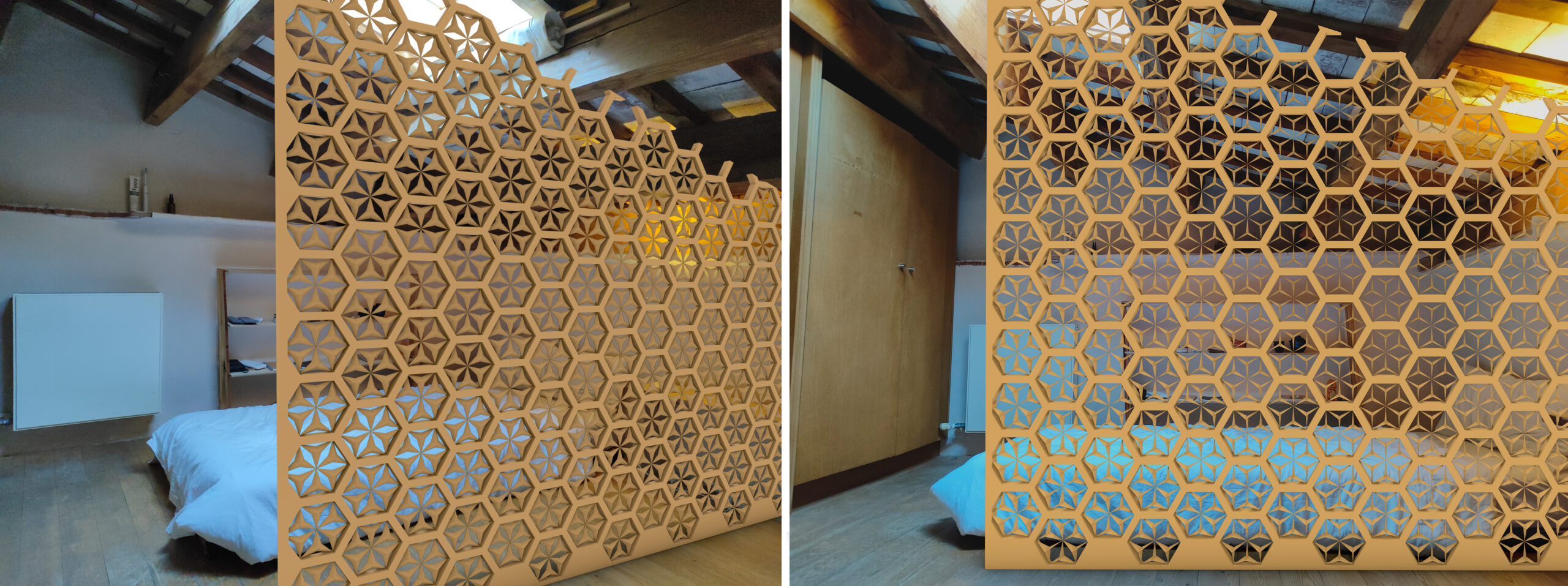As the final assignment for the discipline of Advanced Digital Tools, we were asked to create a dynamic partition wall in one of our dormitories
using computational design principles. The chosen one was room nº 8 of Valldaura Labs, with an area of 9.48m².
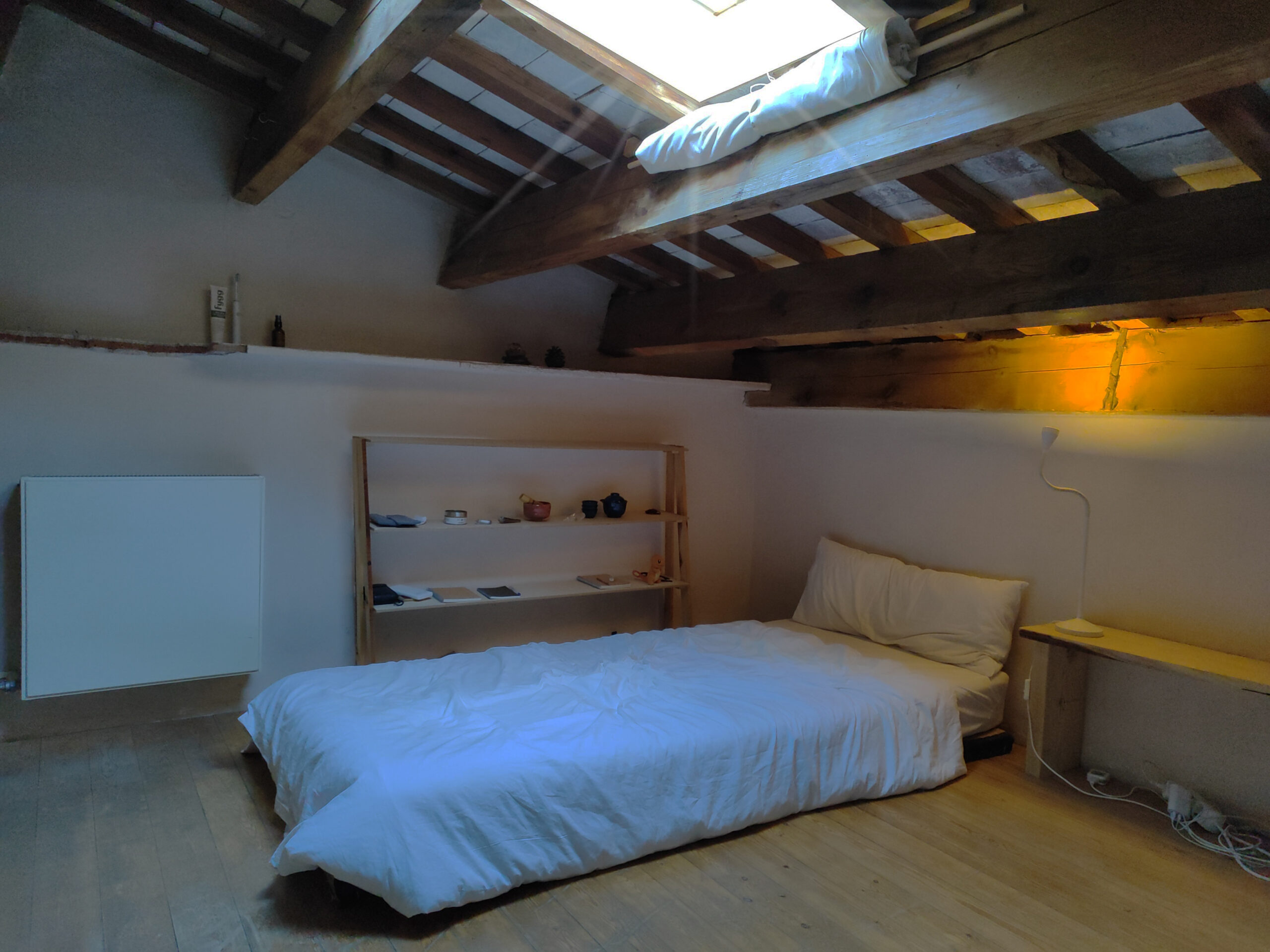
To allow free movement for both dwellers, the wall was designed to be placed at the longitudinal center of the room, leaving a 75cm space from the entrance and subdividing the space into two private chambers.
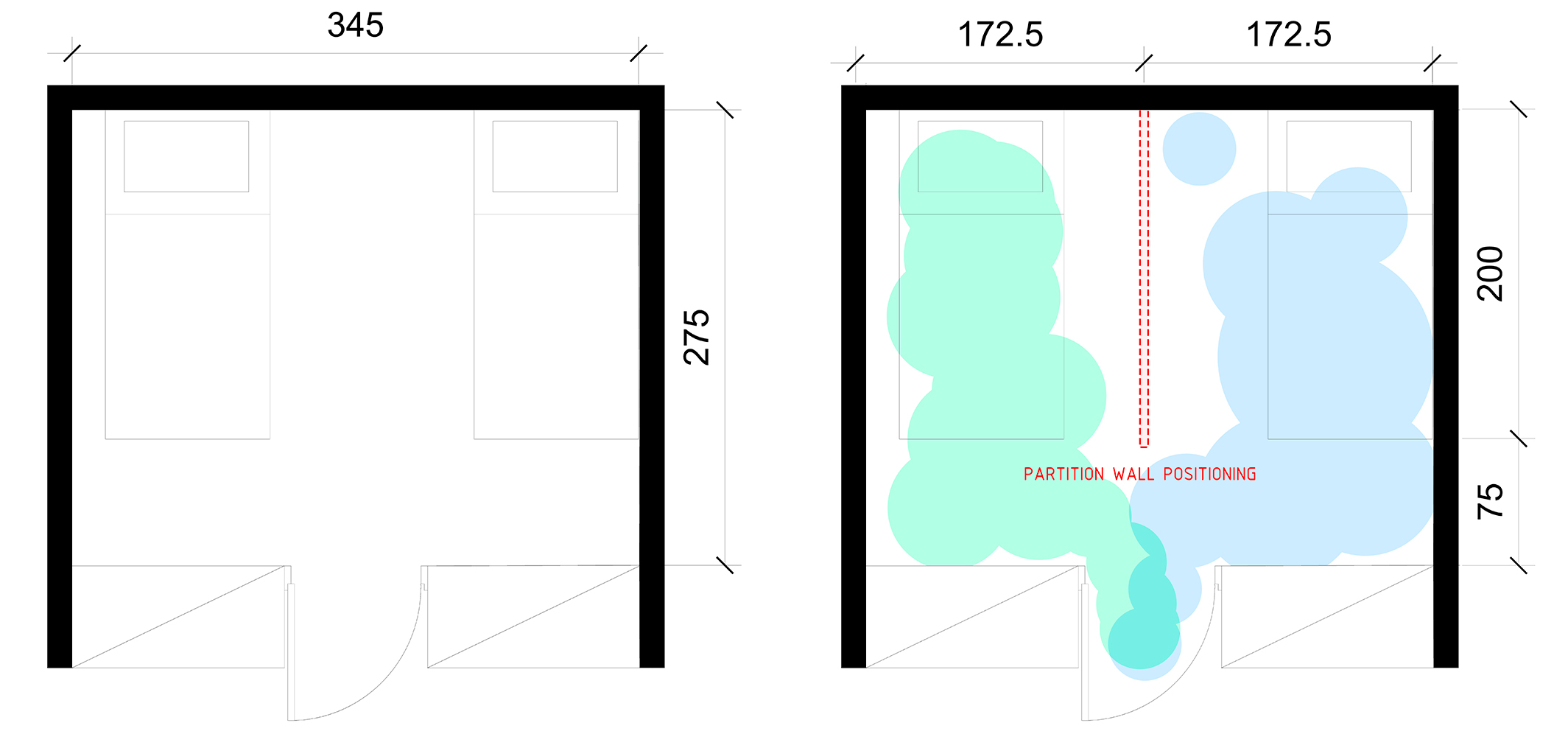
However, one of the goals was to allow the dwellers to control the level of privacy and permeability of the wall, in order to avoid creating a permanent separation and grant airflow when desired – which is important since the heater is located on the left side. With that in mind, the next phase was the design study. We took inspiration from the brise-soleil of the Al Bahr Towers, designed by Aedas Architects. The hexagonal generates inner triangles that allow the faces to fold, creating the desired opening and closing movement.
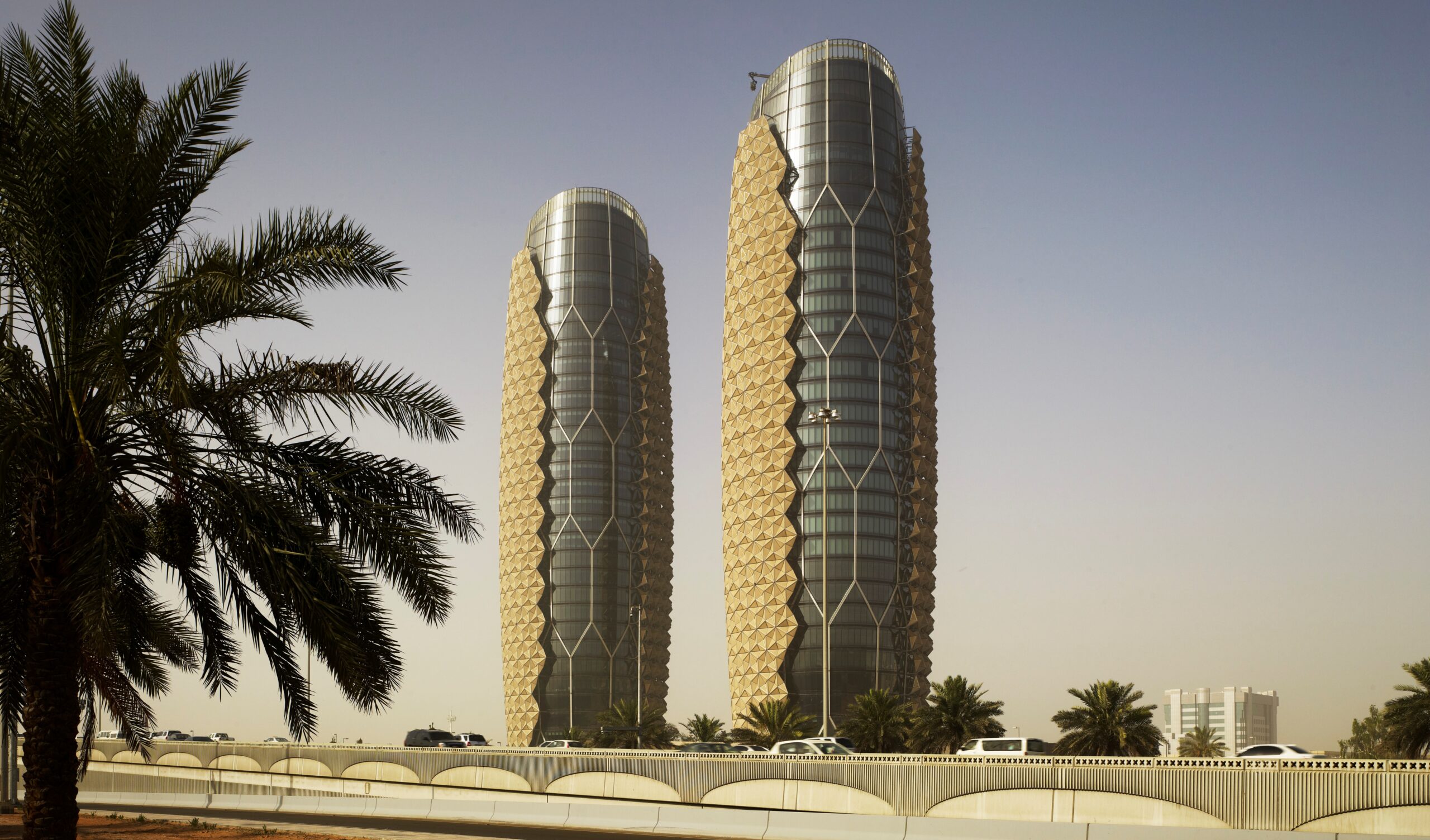
Source: https://www.architectsjournal.co.uk/news/aedas-completes-super-green-al-bahr-towers
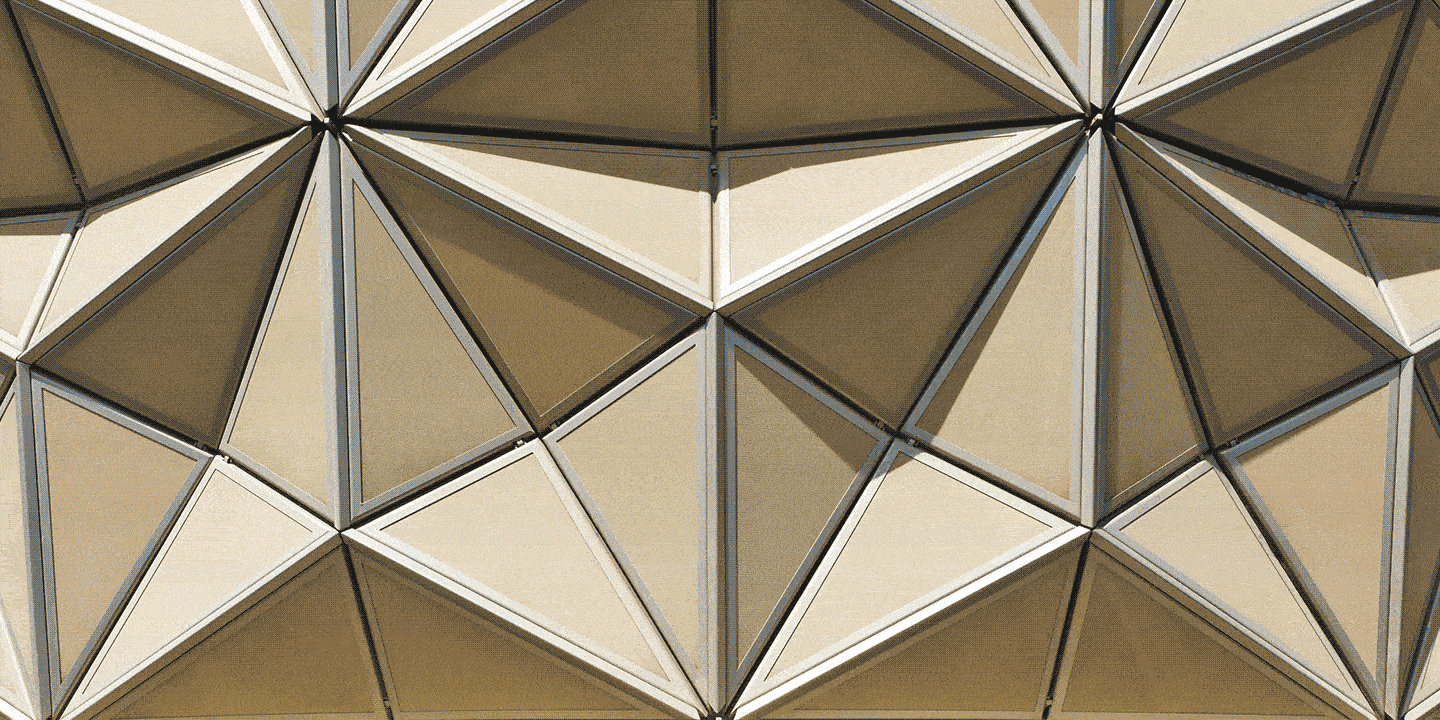
With a moving mechanism in mind, we had to decide the displacement of the triangular faces through the quadrilateral wall. Several shapes were analyzed looking for the ideal method and design until we came up with the final one.

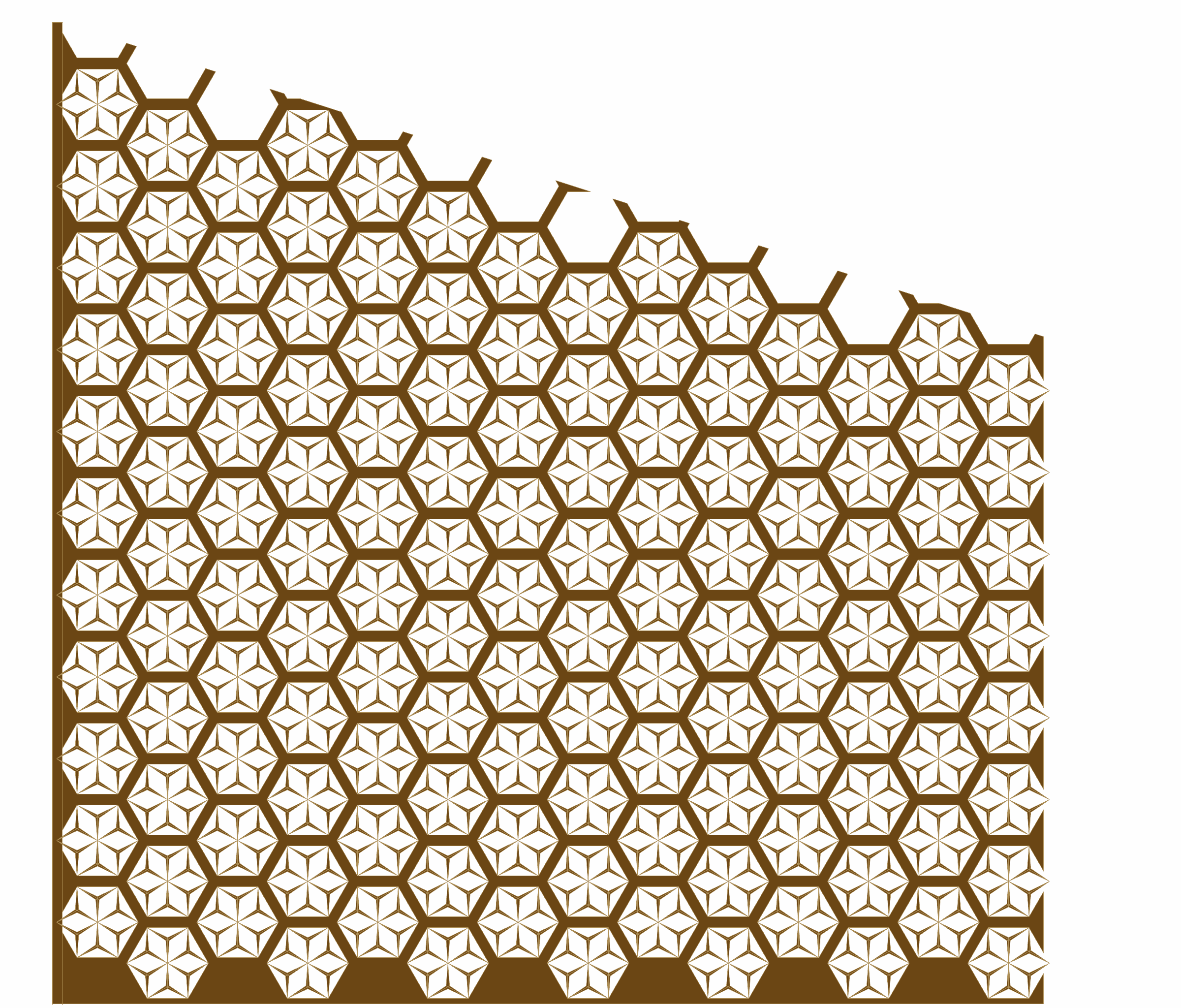
The graphic model was made using the Grasshopper software for Rhinoceros.


